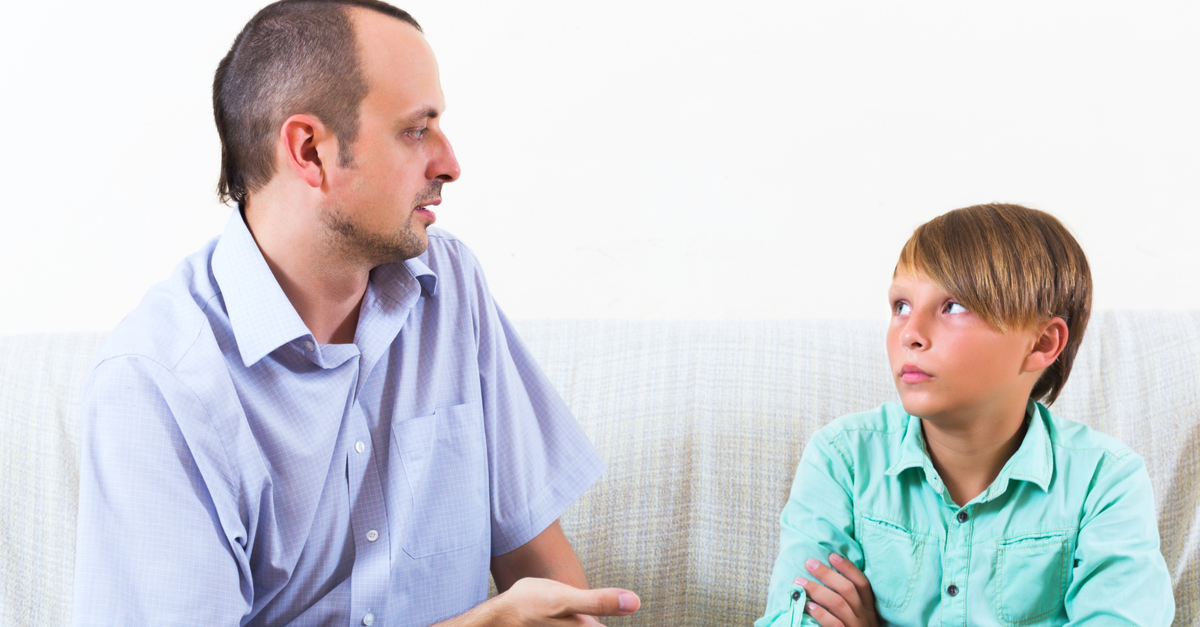Talking to our kids about our adult-life problems is never easy, and many of us opt to simply not do it. This is especially likely when our adult-life problems involve sexual activity. Unfortunately, staying silent about serious issues like addiction can be harmful to your children. Thus, an age-appropriate conversation to let your kids know what’s going on might be an essential part of being a good parent.
The simple truth is children are far more perceptive than most adults realize. When something is amiss in the family, they sense it. If you’re dealing with a sex or porn addiction and that addiction has come to light, there will be anxiety, stress, and emotional instability in your home, and you won’t be able to hide that from your kids. So they deserve to know what’s going on. And if you don’t tell them, it’s possible (perhaps even likely) that they will think the family’s problems are somehow their fault.
Children are naturally self-centric, so they assume, until they’re told otherwise, that they are the cause of strife and distancing in the home. They think, “Daddy doesn’t pay as much attention to me as he used to. I must have done something wrong.” They think, “Mommy and daddy are always fighting. If I wasn’t such a bad boy/girl all the time, that wouldn’t happen.” Worse still, without intervention they will carry these “I’m not good enough” messages with them for the rest of their lives.
Therefore, it’s best to let your kids know, in an age-appropriate way, that you have a problem and you’re working to fix it. If you are married or partnered, the conversation should involve both you and your spouse/partner. This show of unity tells your kids that both parents want them to know it’s an adult issue to deal with, rather than theirs, and you’re addressing it as best you can.
As for what to say, the National Association for Children of Alcoholics suggest that children of addicts need to know the following:
- They didn’t cause it.
- They can’t cure it.
- They can’t control it.
- They can care for themselves by communicating their feelings, making healthy choices, and celebrating themselves.
Communicating these simple talking points relieves children of the “blaming themselves” burden they otherwise take on.
Depending on your children, your disclosure might stop with that. If you feel it would be traumatic for your kids to know the specific nature of your addiction, you might withhold that information, choosing to keep the conversation nonspecific. You might just say that you have a problem and you’re working on it, and that’s why things have seemed a bit “off” in the home. Then you can tell them they didn’t cause it, they can’t control or fix it, and it’s OK for them to talk about their feelings.
If one or more of your kids has spotted porn on your laptop, seen a sext on your phone, or caught you in the act, so to speak, you might need to be a bit more specific. With younger kids, tell them you did something wrong that violated the boundaries of your relationship and now you’re working to make things right. With older kids, you can address specifics, but it’s best to do so in clinical terms without going into detail.
If you (and/or your spouse/partner) are struggling with the idea of telling your children what’s happening, ask your therapist to help. A good therapist can help you (and your spouse/partner) agree on what needs to be disclosed and what language to use. Then you can schedule a family session to facilitate the conversation, and to help your kids understand and process the information you disclose.
* * * * * * * * * *
If you or someone you care about is struggling with sex, porn, or substance/sex addiction, help is available. Seeking Integrity offers inpatient treatment for sex, porn, and substance/sex addicts, as well as low-cost online workgroups. At the same time, SexandRelationshipHealing.com offers a variety of free webinars and drop-in discussion groups, podcasts, and more.
